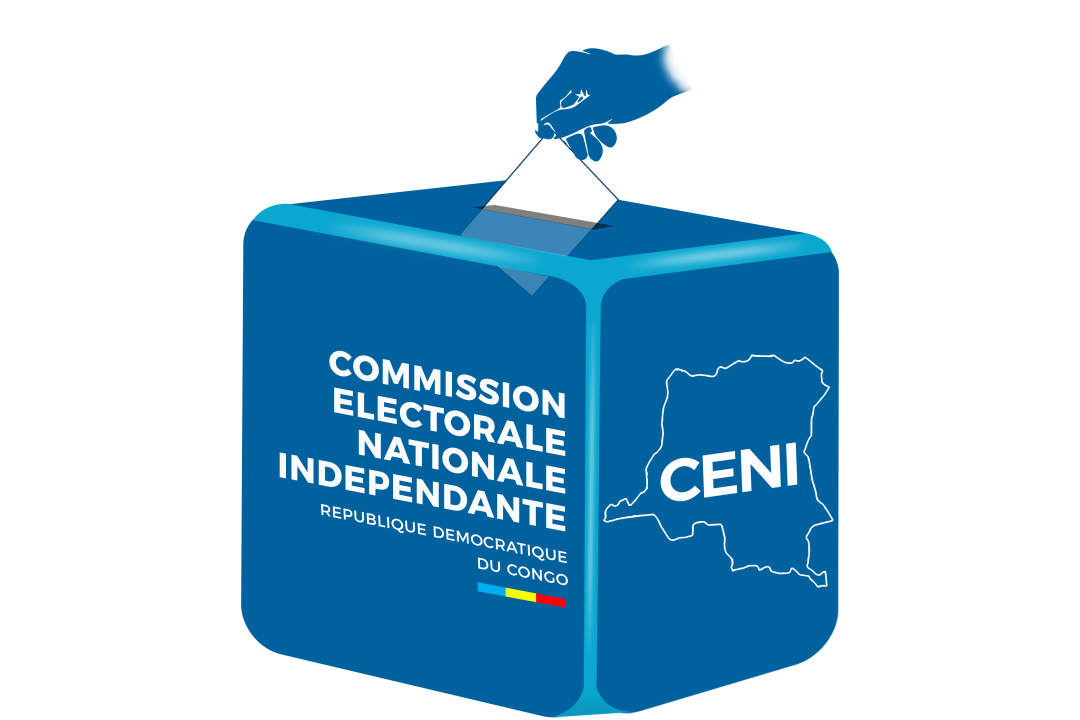
Publication des termes de référence de l'audit du fichier électoral
Mercredi 10 mai 2023 | Communiqué de presse
EXTERNAL AUDIT OF THE VOTER REGISTER 2022-2023
NOTICE OF CALL FOR APPLICATIONS
TERMS OF REFERENCE
- Background
- Through its Press Release No. 022/CENI/2023 of 05 May 2023, the Independent National Electoral Commission (CENI) announced that it was going to launch a call for applications with a view to setting up a joint mission composed of national and international experts for the external audit of the voter register.
- It should be noted that in addition to the Constitution, the Law pertaining to the organization and functioning of the CENI and the electoral law, article 56 of the Law on the identification and registration of voters in the Democratic Republic of Congo (DRC) recognizes that the CENI has the exclusive responsibility for the identification and registration of voters. The CENI carried out voter registration’s operations from 24 December 2022 to 24 April 2023.
- Voter registration is a crucial phase of the ongoing electoral process, as it will lead to the establishment of the voter register. The latter will constitute the basis not only for the allocation of seats for national, provincial and local parliamentary representation, in the various electoral constituencies, but also for all the other operations related to the material organization of the ballots themselves.
- The electoral calendar published on 26 November 2022 by CENI provides for the holding of direct coupled elections of the President of the Republic, Members of the National Assembly, Members of Provincial Assemblies and Municipal Councilors on 20 December 2023, direct elections of Sector or Chiefdom Councilors as well as the staggered organization of the indirect ballots of Senators, Governors and Vice-Governors, Urban Councilors, Mayors and Deputy Mayors in the first half of 2024. According to the above-mentioned calendar, these various polls were to be preceded by the voter registration operations meant to produce the Voter Register, which should be audited internally and externally.
- A particularity of the 2022-2023 voter registration operations in the DRC is that they are based on the pooling of efforts and above all of the resources that the Government has made available to the appropriate institutions to meet, in the short term, the challenges (i) to identify the Congolese population in order to provide each citizen with a national identity card and (ii) to census of the population in the DRC with its various demographic and socioeconomic characteristics. Decree No. 22/09 of 02 March 2022 circumscribes operational pooling, which consists of mutualizing human, technical, logistical and material resources dedicated to carrying out common activities, with a view to contributing to the production of operational maps, the voter register and the national civil register.
- In general, a Voter Register, a database which contains all the electoral lists, polling centers and stations, is a national document of extreme importance and sensitivity in any electoral process. Central element of this process, the Voter Register raises multiple issues, including legal, political, economic, financial and technological challenges. These issues include, among other things, security of the database and the protection of personal data. A Voter Register like the one to be produced by CENI, and which will serve as the basis for the National Office for Population Identification (ONIP) Civil Register, includes biographical, biometric and digital data, whose access must be more protected and more secure.
- In practical terms, CENI has designed an implementation mechanism for voter registration which provides for its Voter Register to be transferred ONIP to serve as a basis for the deployment of its own mechanism for the overall identification of the population.
- It should be noted that, unlike the majority of African countries which only issue a receipt at the time of voter identification and enrolment, followed after several months by the issuance of the voter card, the legal and regulatory framework in force in the DRC provides that the voter card must be given directly to applicants during voter identification and registration operations. Each of these two systems has its advantages and disadvantages. In the DRC, minors as well as voters who have been registered more than once could therefore find themselves holders of voter cards, even in the event of their removal from the voter register. In accordance with the law and the principle of the uniqueness of the voter, CENI retains, in the final version of its roll, only the last registration in the event of multiple registration.
- After the stabilization of Registration Centers mapping, the current Voter Register was constituted by the collection of data carried out on the ground, in three (3) Operational Areas. Then, CENI continued operations with the collection and centralization of all the data collected in a single database. Finally, the Voter Register was consolidated through major operations, in particular the detection of duplicates, minors and invalid photos using the ABIS software, provided by one of the world leaders in the processing of biometric data. Following the consolidation of the Voter Register, CENI plans to identify a group of service providers, able to help it audit its electoral roll.
- During the meeting of its Plenary Assembly held on 05 May 2023, CENI opted for the establishment of a joint team composed of national and international experts to conduct the external audit of the electoral register, through a call for applications. This call for applications is intended for individuals or natural persons with an appropriate profile and meeting the requirements for this mission. The selection and constitution of the joint mission will be validated by CENI’s Plenary Assembly.
- The audit, a qualitative and quantitative analysis of data from the electoral register, is part of the good electoral practices that CENI has included in its Strategic and Operational Plan 2022-2026 which, in its axis 3, enshrines the principle of transparency at each stage of the electoral process.
- Goals
- The overall objective of the external audit of the Voter Register is, on one hand, to evaluate the current system of identification and registration of voters, in order to identify its strengths and weaknesses and to identify possible corrective measures, and on the other hand, to formulate, if necessary, substantive recommendations aimed at improving the quality and integrity of the electoral register.
- The specific objectives of the external audit of the Voter Register are:
- To analyze the legal and regulatory framework of voter registration, and assess its relevance;
- To carry out the necessary reviews of the electoral register in terms of inclusiveness, exhaustiveness and accuracy;
- To make recommendations in relation to the CENI’s Voter Register.
- Work methodology and Code of good conduct
- The service providers will propose to CENI a methodology of work which must be validated by the latter. It should be noted that the conditions for the success of the mission are as follows:
- Validation of the Terms of Reference (TORs) by the Plenary Assembly of CENI;
- Consultation of qualified and interested service providers, in compliance with relevant procurement procedures;
- Choice of service providers and approval of the joint team thus composed;
- Initial scoping of the methodology and the progress of the mission by the service providers selected by the Plenary Assembly of CENI;
- Validation of the external audit methodology;
- Approval of the results of the Audit by the Plenary Assembly;
- Publication of Audit results.
- A code of good conduct will be defined with a view to highlighting the possibility of legal action in the event of violation of the established principles and rules, in particular the duplication and publication in any form whatsoever of the personal data of voters or of the data of the Voter Register or even their use for a purpose other than that of the audit in question.
- Expected products
- Deliverables expected from this mission are:
- An External Audit Report, including an executive summary highlighting the main findings, is prepared;
- All the answers and explanations provided by CENI are, as far as possible, annexed to the Report.
- Profile of Auditors – Selection Conditions
- This call for applications is intended for natural persons interested in being part of the multidisciplinary team meant to undertake the external audit to the CENI Voter Register. Interested candidates for this mission should meet the following conditions:
- Hold a Bachelor's degree, a Master's degree (Bac+5) or an equivalent degree in political science, international relations, law, social sciences, demography, statistics, computer science or in the field of engineering;
- Have a minimum of 10 years of specific professional experience in the field of elections or other related fields, in particular:
- management of electoral systems;
- legislation and management of electoral processes;
- demographics and statistics;
- IT applications relating to voter registration.
- Have solid references in the field of management and audit of information systems, and particularly in the audit of voter registers;
- Not being in any situation of conflict of interest, in particular:
- Be or have been a member of the Bureau or the Plenary of CENI, staff or executive of CENI both at the national level and at the level of dismemberments;
- Acting and/or exercising functions in a leadership position of a party or political group;
- Hold a position of responsibility in an accredited electoral observation group;
- Be an electoral observer, national or international, from an organization duly accredited by CENI.
- In line with its gender policy, CENI strongly encourages female candidates.
- Duration of the external audit
- In accordance with the calendar of the ongoing electoral process in the DRC as published by CENI on 26 November 2022, the external audit is scheduled for 6 days. It should be noted that strict calendar deadlines do not offer much flexibility to CENI, making any extension uncertain.
- Presentation of an External Audit Report of the Voter Register
- The presentation of the audit report will include the following steps:
- Submission of a preliminary report;
- Validation of the preliminary report by CENI;
- Submission of a final report;
- Publication of the external audit report by CENI.
- Application procedure and deadline
- Individuals interested in this Call for Applications are requested to submit a complete application to CENI either electronically (preferably) or by physical delivery of the application in a sealed envelope to the following addresses:
-
- Email address: secab@ceni.cd
- Physical address: CENI Headquarters, 4471 Boulevard du 30 Juin, Kinshasa-Gombe
- The file must include the following elements:
- A letter of motivation addressed to the CENI President;
- A detailed Curriculum Vitae including the candidate's full contact details (surname and first name, address, telephone and email);
- Three reference persons having no family ties and able to confirm professional and moral standing of the candidate.
- The submission of applications is open as soon as this notice is published and will be closed on Thursday 11 May 2023 at 17:00, the acknowledgment of receipt or the footprint of the email will serve as a proof.
Fait à Kinshasa, le
Patricia NSEYA MULELA
Rapporteur

